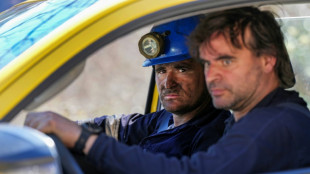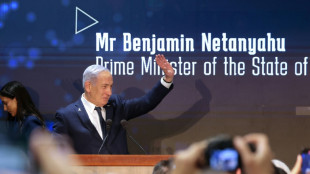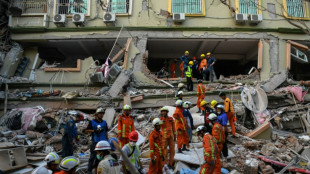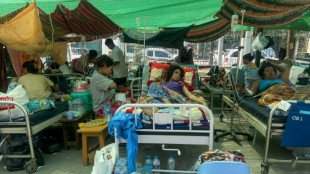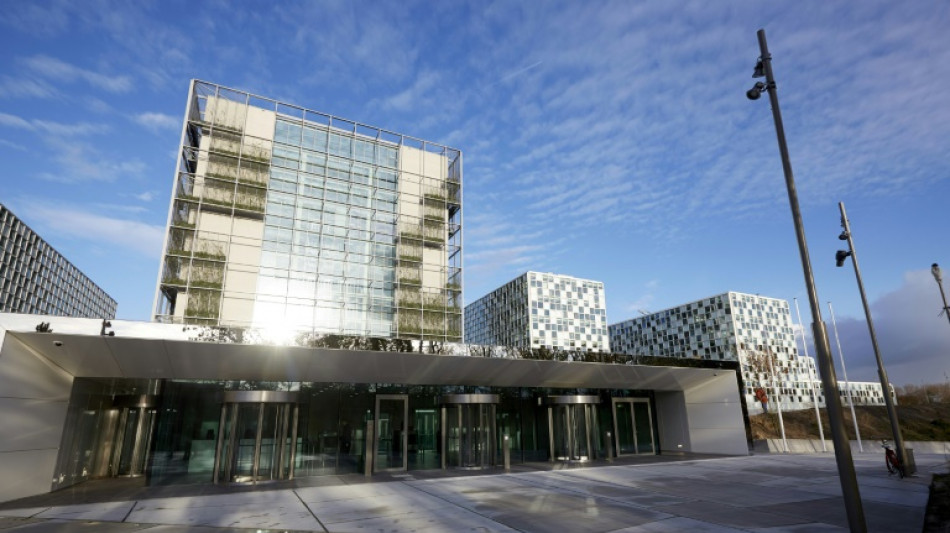
| RBGPF | 1.47% | 68 | $ | |
| CMSC | -0.31% | 22.3934 | $ | |
| AZN | -1.07% | 73.01 | $ | |
| VOD | -1.02% | 9.355 | $ | |
| RIO | -2.38% | 59.61 | $ | |
| NGG | -0.44% | 65.28 | $ | |
| GSK | -0.98% | 38.365 | $ | |
| RYCEF | -2.16% | 9.7 | $ | |
| BP | -0.39% | 33.73 | $ | |
| BTI | 1.59% | 41.165 | $ | |
| RELX | -0.24% | 50.04 | $ | |
| SCS | -0.59% | 11.035 | $ | |
| JRI | 0.26% | 12.904 | $ | |
| BCE | 0% | 22.97 | $ | |
| BCC | -0.11% | 98.195 | $ | |
| CMSD | 0.13% | 22.74 | $ |

Top UN court to rule on massive DR Congo reparation claim
The UN's top court will rule Wednesday in a long-running compensation fight between Uganda and the Democratic Republic of Congo, which is claiming billions of dollars over a brutal 1998-2003 war.
The International Court of Justice is set to give a verdict at 1400 GMT over a legal battle Kinshasa launched against Kampala more than two decades ago.
In 2005 the ICJ ruled that Uganda had to pay reparations to its vast central African neighbour for invading it in a five-year war that left hundreds of thousands of people dead.
Kinshasa is now claiming more than $11 billion for the occupation of its volatile northeastern Ituri region.
At the same time however, the Hague-based court also said in 2005 that Uganda should be compensated after its embassy in Kinshasa was attacked and its diplomats abused.
Negotiations on an amount drew to a stalemate and in 2015 Kinshasa asked for the case to go back before the judges.
Following further postponements to find a solution, the ICJ also heard four independent experts to advise it on a possible amount.
Last year Kinshasa's agents were back in court however accusing Kampala "of serious breaches of human rights verging on barbarity".
They said Kampala needed to "fully assume its responsibility for the injury caused... and a substantial contribution".
Uganda's representatives rejected what they called "staggering" demands for the claim, saying the sum claimed was "disproportionate and economically ruinous."
"It essentially seeks to make Uganda responsible for everything that happened in the conflict," Uganda's Attorney General William Byaruhanga told the court.
At its height, the conflict drew in nine African countries, with Uganda and Rwanda backing rebel forces against the Kinshasa government as they jostled for control of the mineral-rich Ituri region.
Currently Congolese and Ugandan troops are back in the region, but this time in an unprecedented offensive against the Allied Democratic Forces, the region's deadliest militia, which the Islamic State group calls its affiliate.
In the latest suspected ADF rebel attack, three people were killed on Saturday in the Beni territory in the neighbouring North Kivu province.
Late last year Ugandan and Congolese troops launched the combined offensive against the ADF despite complicated relationships between the two neighbours.
Founded after World War II, the ICJ in The Hague rules in disputes between countries, mainly based on treaties.
Its decisions are final and cannot be appealed.
R.Vandevelde--JdB
